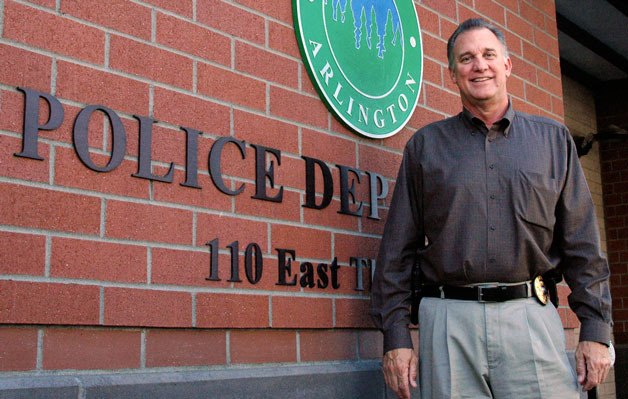ARLINGTON — A question posed to Sen. Mary Margaret Haugen about privatizing liquor sales led to discussion on Colton Harris-Moore — the “Barefoot Bandit” — during a recent Arlington-Smokey Point Chamber of Commerce Meeting.
Haugen (D-Camano Island), speaking to about 50 chamber members and officials at the Medallion Hotel on Tuesday, July 13, was asked how she felt about the two initiatives that could allow voters to change the way liquor is sold in Washington.
The 10th District senator told the meeting attendees that she didn’t want to make it easier for people to get booze, but added that Initiative-1105 would at least help the state continue funding local school districts.
“As much as districts hate the Becca Bill, it’s making a difference,” Haugen said. “What if there had been some sort of intervention with the ‘Barefoot Bandit?’ Early intervention makes a big difference.”
Harris-Moore, a Camano Island fugitive, was arrested in the Bahamas on July 11. The 19-year-old is facing multiple federal and state charges.
Harris-Moore was not the only subject of discussion during Haugen’s talk.
Haugen spoke about a number of budgetary challenges that the Legislature faced during its recently concluded special session in Olympia.
“It was a brutal session,” Haugen said. “It wasn’t so much a budget session as it became a tax session … We ended up doing a little bit of both.”
Haugen said during the session that she wasn’t willing to cut funding for education or for senior citizens, and tried hard to support legislation that would keep jobs in Washington.
The state Senate’s Transportation Committee Chair said that gas tax helped create a lot of jobs through the transportation budget thanks in part to bipartisan support.
That $8 billion budget included about $560 million in federal funds to support light rail efforts.
“We have to get these projects going,” Haugen said. “The state has continued to invest in rail. They’re never going to be able to build another highway in this area. It’s my opinion that the I-5 corridor will one day be rail.”
Haugen also credited the media for uncovering questionable state ferry system practices, and said that changes were being made to hold workers accountable.
Tolls for travelers who use the SR 520 bridge in Seattle was also a topic Haugen touched on during her half-hour speech.
She said that legislators want to make sure that they implement a system that is unlike the one in place on the Tacoma Narrows Bridge.
“I think we’re going to do this right,” Haugen said. “We learn in government, believe it or not.”
Finally, Haugen said she was in support of the cell phone law that went into place earlier this year allowing officers to pull over drivers for using their phones without hands-free devices.
“I think this is one of the better things that we’ve done,” she said.
The state senator then fielded a handful of questions from audience members, including city of Arlington Administrator Allen Johnson, who asked when local and state government might see construction projects on 172nd Street NE — one of the county’s busier streets.
Johnson said that city officials had been in talks with Walmart management regarding the additional traffic the new Arlington store will bring to the area.
That new store, currently being constructed just off 172nd Street NE across from the Arlington Municipal Airport, is scheduled to be open by October.
Haugen said that growth in that area, as well as the Highway 9, have provided lawmakers with a big challenge.
She added that more fuel-efficient vehicles, such as hybrids, are causing the state to lose gas tax funds, which are having an effect on construction projects.







